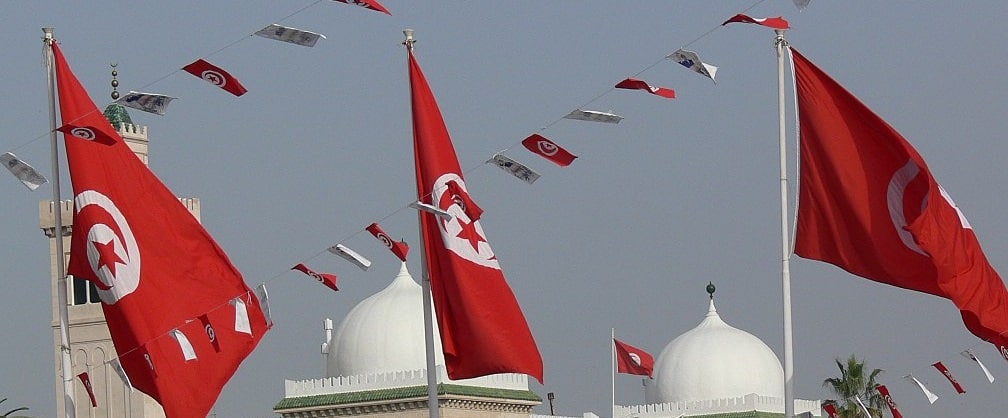Since the beginning of the year, the environment has become increasingly hostile for the freedom of expression and the press in Tunisia. A newly adopted finance law and the increasing price for a number of materials has been sparking protests, and as we reported, police arrested — and then released — Kais Bouazizi, relative of Mohamed Bouazizi, known for having set himself on fire in December 2010 and inspiring the Arab Spring. The journalists covering these protests are now facing government surveillance, police threats, and other forms of interference with their work.
Interior Minister admits that government spies on journalists and activists
On January 29, during a hearing at the Assembly of the Representatives of the People (ARP) in the Committee of Security and Defense, Minister of Interior Lotfi Brahem said that authorities recorded telephone calls between a journalist and protesters, and that this led to the journalist’s arrest, interrogation, and finally his release. This admission is evidence that the ministry has been spying on the communications of Tunisian journalists, perhaps since the “Fech Nestannew’’ social protests began in early January.
Journalists respond: a “Day of Anger”
The National Union of Tunisian Journalists (SNJT) said in a statement that it has received complaints from journalists in the capital, who say that authorities focused on monitoring security are listening to their telephone calls and spying on their personal lives.
Meanwhile, according to a trusted source, police have arrested more than 1,000 Tunisians who took part in the protests during January. Of these, 360 have been released, but the rest remain behind bar s— including, the source says, 90 minors.
The sharp increase in arrests in Tunisia had already led Rupert Colville, a spokesperson for the United Nations High Commissioner for Human Rights, to publish a press release stating, “The authorities must ensure that those exercising their rights to freedom of expression and peaceful assembly are not prevented from doing so. Ahead of the 14 January anniversary of the 2011 revolution, it is particularly important to ensure that demonstrators are able to protest peacefully.”
The SNJT expressed its concern about these practices, which are reminiscent of practices in the time of tyranny, and warned that the Minister of the Interior has launched a campaign against journalists since his arrival at the ministry.
On January 2, the SNJT organized a “Day of Anger” and members of the profession wore a red ribbon around their arms as a protest against the infringement of freedom of expression. The SNJT also wrote a letter to the three presidents (of the Republic, of Parliament, and of the government [PM]), warning them of the deterioration of and threats to the freedom of the press.
On February 5, in Carthage, President of the Republic Béji Caïd Essebsi met with members of the executive board of the SNJT. Néji Bghouri, SNJT’s president, emphasized the importance of dialogue with all concerned parties to overcome the crisis and to support freedom of the press, as well as the necessity of improving working conditions for journalists by accelerating the enactment of necessary legislation. SNJT also said that they are prepared to sue the ministry of interior for spying on them.
Activists remain in danger
Access Now has learned through several of our close partners that many activists are in danger, detained, and in some cases, targeted by authorities even after their release. Worryingly, surveillance cameras are being put up everywhere, and may be used to track who goes to which protests and when. We haven’t seen this kind of clampdown on freedom of expression and protesting since the days prior to the revolution.
Tunisia is widely seen as a democratic success story among Arab Spring governments, keeping the freedom of expression sacred and untouchable. However, given the statement by the Minister of Interior to the media, it appears that the fruits of the Tunisian revolution are in danger.
Need help? Contact us
Access Now is deeply concerned about violations of the fundamental rights to privacy and freedom of expression. If the government is able to follow every move you make and monitor your communications, your privacy is not protected, and neither are the other human rights that it protects. This runs contrary to Article 24 of the Constitution of the Tunisian Republic.
We encourage journalists and activists who are concerned about online surveillance to contact our Digital Security Helpline. We can help you in French and Arabic.
